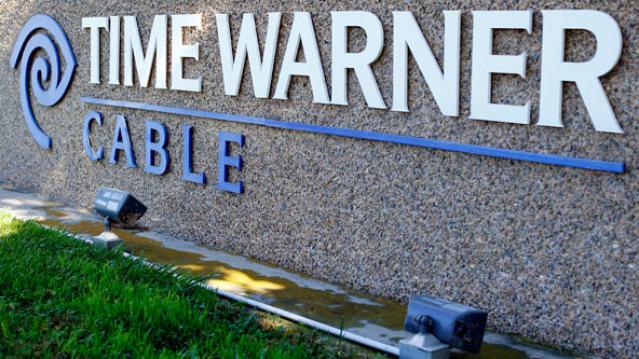Charter to Buy Time Warner Cable: Winners and Losers

Charter Communications on Tuesday said it will acquire Time Warner Cable in a deal valued at more than $55 billion. Charter will also buy Bright House Networks, a smaller cable company, for $10.4 billion. The two deals combined will make Charter into the second-largest cable and broadband provider in the U.S., with about 24 million subscribers, behind only Comcast, which has about 27 million subscribers.
WINNERS
Time Warner shareholders: An extra $10 billion over the $45.2 billion Comcast had offered sure makes for a nice payday after the earlier deal got scrapped. “Time Warner Cable has succeeded in extracting a fantastic price for its shareholders, far exceeding our expectations,” Morningstar strategist Michael Hodel wrote Tuesday. Hedge fund managers John Paulson of Paulson & Co. and Chris Hohn of Children’s Investment Fund Management reportedly both had sizable holdings in Time Warner Cable.
Time Warner Cable subscribers: The company’s service is reviled by customers. Charter’s isn’t exactly beloved, either, and subscribers may not see any immediate changes, but Charter promises that the deal will translate into faster broadband for subscribers and more free public Wi-Fi. Whether it actually does or not, the deal seems to spell the end of the Time Warner Cable name. Subscribers won’t miss it.
John Malone: The Liberty Media billionaire finally gets the megadeal he’s been looking for to make Charter Communications into a major industry power. If the deals goes through, the company would become the second-largest cable and broadband provider in the country, with some 24 million total subscribers.
Related: Charter and Time Warner Cable Merger: It’s All About Broadband
LOSERS
Comcast: At least CEO Brian Rogers was graceful about the prospect of a larger competitor. "This deal makes all the sense in the world,” he said in a statement. “I would like to congratulate all the parties."
Television content providers: One rationale for the deal is that the scale of the combined company will afford it more leverage in its negotiations with programmers.
Cable customers and online video watchers? The proposed deal still concerns consumer advocates like those at public interest group Free Press. “The issue of the cable industry's power to harm online video competition, which is what ultimately sank Comcast’s consolidation plans, are very much at play in this deal,” said Derek Turner, research director for Free Press. “Ultimately, this merger is yet another example of the poor incentives Wall Street’s quarterly-result mentality creates. Charter would rather take on an enormous amount of debt to pay a premium for Time Warner Cable than build fiber infrastructure, improve service for its existing customers or bring competition into new communities.”
Tweet of the Day: The Black Hole of Big Pharma

Billionaire John D. Arnold, a former energy trader and hedge fund manager turned philanthropist with a focus on health care, says Big Pharma appears to have a powerful hold on members of Congress.
Arnold pointed out that PhRMA, the main pharmaceutical industry lobbying group, had revenues of $459 million in 2018, and that total lobbying on behalf of the sector probably came to about $1 billion last year. “I guess $1 bil each year is an intractable force in our political system,” he concluded.
Warren’s Taxes Could Add Up to More Than 100%

The Wall Street Journal’s Richard Rubin says Elizabeth Warren’s proposed taxes could claim more than 100% of income for some wealthy investors. Here’s an example Rubin discussed Friday:
“Consider a billionaire with a $1,000 investment who earns a 6% return, or $60, received as a capital gain, dividend or interest. If all of Ms. Warren’s taxes are implemented, he could owe 58.2% of that, or $35 in federal tax. Plus, his entire investment would incur a 6% wealth tax, i.e., at least $60. The result: taxes as high as $95 on income of $60 for a combined tax rate of 158%.”
In Rubin’s back-of-the-envelope analysis, an investor worth $2 billion would need to achieve a return of more than 10% in order to see any net gain after taxes. Rubin notes that actual tax bills would likely vary considerably depending on things like location, rates of return, and as-yet-undefined policy details. But tax rates exceeding 100% would not be unusual, especially for billionaires.
Biden Proposes $1.3 Trillion Infrastructure Plan

Joe Biden on Thursday put out a $1.3 trillion infrastructure proposal. The 10-year “Plan to Invest in Middle Class Competitiveness” calls for investments to revitalize the nation’s roads, highways and bridges, speed the adoption of electric vehicles, launch a “second great railroad revolution” and make U.S. airports the best in the world.
“The infrastructure plan Joe Biden released Thursday morning is heavy on high-speed rail, transit, biking and other items that Barack Obama championed during his presidency — along with a complete lack of specifics on how he plans to pay for it all,” Politico’s Tanya Snyder wrote. Biden’s campaign site says that every cent of the $1.3 trillion would be paid for by reversing the 2017 corporate tax cuts, closing tax loopholes, cracking down on tax evasion and ending fossil-fuel subsidies.
Read more about Biden’s plan at Politico.
Number of the Day: 18 Million

There were 18 million military veterans in the United States in 2018, according to the Census Bureau. That figure includes 485,000 World War II vets, 1.3 million who served in the Korean War, 6.4 million from the Vietnam War era, 3.8 million from the first Gulf War and another 3.8 million since 9/11. We join with the rest of the country today in thanking them for their service.
Chart of the Day: Dem Candidates Face Their Own Tax Plans

Democratic presidential candidates are proposing a variety of new taxes to pay for their preferred social programs. Bloomberg’s Laura Davison and Misyrlena Egkolfopoulou took a look at how the top four candidates would fare under their own tax proposals.


